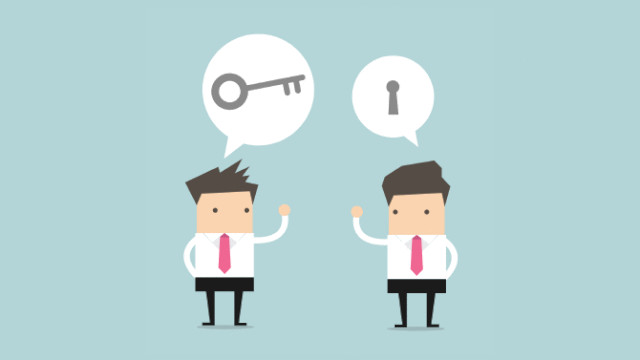Effective communication skills when both are dissent
In life, communication is essential for any of us. However, the conversation does not always go smoothly. There are times when you have to deal with people who don't share your views, and we can't talk to these people. In these circumstances, skillful communication is essential, because if you do not control yourself, it is easy to lose your temper and there is an unnecessary conflict, causing loss of harmony.
- 10 ways to help you avoid "miss words" errors when communicating
- 12 bad habits in dealing with many people
- 9 sayings that smart people never use in everyday communication
So how to chat with someone who does not have the same viewpoint that is smooth, without stress?
First: You need to identify the target

Grandparents say the fruit is not wrong 'Know who knows me, hundred games of victory', so before starting a conversation with someone, you should take some time to learn about the enemy. Especially if that person is the opposite person to you.
Spending some time to learn about the common points of you and your partner will help you get a better overview of the person you are talking to. From there help you have a more successful conversation.
Next: Agree on certain rules

Everywhere, to achieve the highest efficiency, the rule is always the focus of people.
For example, before going to a discussion, you and your partner can go to lunch or coffee together. After you have learned about the opponent, 2 you can come up with certain rules that need to be followed in that discussion.
Find out, talk, be honest and listen. From there all behaved in a civilized, peaceful manner.
Third: Take advantage of some questions

Setting up some questions around the problem you are about to talk about is essential, but many people often ignore this. Asking questions is a way for you to understand the problem as well as the real person of the partner and you have the opportunity to point out the shortcomings you are having.
Therefore, posing questions will help to systemize incompatibilities between the views of the two people, but also to show that person that they are being listened to.
Fourth: Keep calm

Keeping calm in conversations with tremendous power, this cannot be natural but every one of us needs to practice.
When the conversation between you and 'him' becomes tense, instead of trying to express your personal views to refute the opponent's opinion, you should calm down, take a deep breath. and lower your ego, you will find the conversation more comfortable.
Besides, you can also switch to another topic, creating relaxation for you as the opponent to both enjoy, ignore the past.
Finally: Do not keep prejudice

If you always carry negative thoughts, prejudice about the other person will be forever and they will not be able to integrate into one story, it will make you lose the opportunity to understand why they do it. so.
The people we are born with are not perfect, there will be others who have friends who will enjoy chatting with them, some of whom have prejudices. Just a little scratch, the conflict of the two will never come to an end. As a result, the conversation is always unnecessarily stressful and difficult to last longer.
So, every one of us should learn a little communication skill to make your work and life more convenient.
Maybe you are interested:
- "Active listening" helps you become a good communicator
You should read it
- ★ How to accomplish goals in life
- ★ 45 truths of life that anyone needs to remember
- ★ From a pair of shoes, help you understand more about life: Everyone should read!
- ★ Social networks do not create a diversity of views
- ★ YouTube changed the way it views views on music videos, the first record battle for views in the first 24 hours